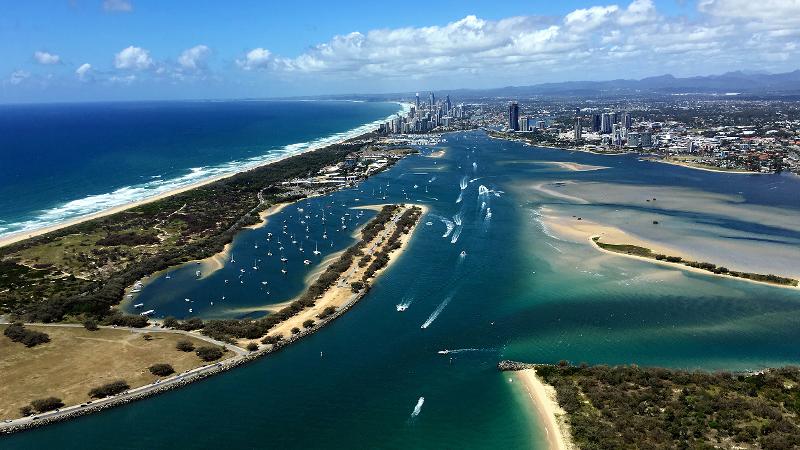
Gold Coast Waterways Authority engages QUT to develop innovative solutions for waterways planning, management and safety.
The Gold Coast Waterways Authority (GCWA) is investing in a smart camera trial to build a detailed picture of activity on the city's waterways network to help improve planning, network management and safety.
GCWA has engaged QUT to use the technology to gather data on how the waterways are being used.
Analysis of this data will be used to inform plans and strategies for managing current and emerging pressures placed on the waterways by population growth and increasing boat ownership.
The research team will use advanced machine learning and statistical methods to estimate the number and types of vessels using the waterways. In combination with information on marine incidents and weather conditions, this will establish usage trends and provide insight into future patterns of waterways use and pressure points.
A second component of the project is exploring the feasibility of using the same camera technology to develop a more accurate way of measuring vessel speed on the water.
GCWA CEO Hal Morris said the project builds on a study released last year by the GCWA into users and uses of the waterways network.
"That earlier study gave us a fairly broad idea of how the waterways are being used. Now we need more detail to improve our future planning," he said.
"We'll be using the cameras to create a more complete picture of who is using the waterways, where they're going, what type of vessel or watercraft they're travelling in, and how they're interacting with other users and the environment.
"This information hasn't been collected before to this level of detail on the Gold Coast.
"It's important because to successfully plan for the future we need to understand the impacts population growth and rising boat ownership are having so that we can plan for these changes, protect the environment and ensure locals and visitors continue to enjoy safe access to our beautiful waterways city."
QUT Project Manager Associate Professor James McGree, from the QUT Centre for Data Science and Science and Engineering Faculty, said the cameras will take continuous photographs at their locations at all times of the week and in all weather conditions.
"We will be using image analysis to automatically process these photographs and advanced machine learning methods to understand what features of the images can be used to identify vessel type and determine the number of users," he said.
"From this, we will develop a statistical model that will incorporate additional information about, for example, weather and marine incidents, to provide an indicator of future patterns of waterways use."
Mr Morris said in terms of the speed component of the project, estimating on-water speed is very different to land-based speed. The researchers will consider several factors including the strength and direction of water currents (measured through current sensors placed at several locations), weather, the directions vessels are travelling and distances from the camera.
The project will also investigate whether computers can be trained to recognise vessel registration numbers to help with the identification of speeding vessels.
A report into the outcomes of a speed limit trial conducted by the GCWA in the Coomera River (South Arm) between July 2018 and June 2019 recommended investigations into the use of new technology to enhance marine safety and educate waterways users about safe behaviours.






